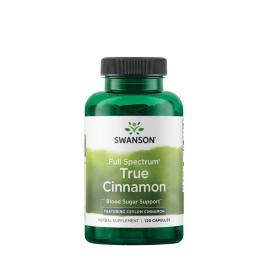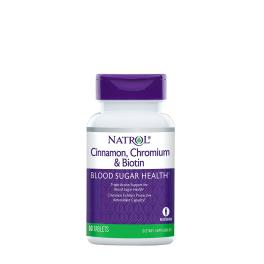Cinnamon is a spice that is as widespread as cocoa, and is used all over the world. I don't think anyone needs an introduction, everyone has tasted it. Cinnamon comes from the bark of certain tree species, from the bark of the branches or roots.
The main active principles of the bark of the branches are monoterpenes and cinnamaldehydes, the main active principles of the bark of the root are also monoterpenes, and it contains camphor instead of cinnamaldehydes.
The European Scientific Association for Phytotherapy has adopted two cinnamon varieties for medicinal purposes: cassia and Ceylon cinnamon. Both cinnamon varieties differ in part in their composition.
The active ingredients of oil extracted from the bark of Ceylon cinnamon bark are trans-cinnamaldehyde (50-60%), eugeonol and linalool, three of which account for at least 80% of the total active ingredient content.
The active substances extracted from the bark of the cinnamon twig of cassia are cinnamaldehyde, cinnamic acid, cinnamic alcohol and coumarin.
It is important to add that cinnamon aldehydes, unlike other ingredients, lose their structure when exposed to heat (above 60°), and thus cinnamon loses one of its important active ingredients when exposed to heat.
Cinnamon is best known for its blood sugar regulating effects, but its benefits are much broader than that, extending to the whole body.
Both Ceylon and cassia cinnamon have insulin-like effects. This means that it allows the sugar in the blood to be used up - balancing blood sugar levels. In diatbetes (whether Type I ot Type II), the pancreas cannot produce enough insulin, so the cells cannnot use the sugar that is released into the bloodstream straight away, but after a high blood sugar spike, when the body has managed to produce enough sugar, blood sugar levels suddenly drop - an undesirable condition that can cause many complications. In insulin resistance, enough insulin is produced, but the cells are unable to sense this and absorb the sugar in the blood.
This is where cinnamon helps, by producing insulin-like effects and stimulating the insulin hormone. Cinnamon therefore stabilises blood glucose levels, which may help in the treatment of diabetes or insulin resistance, and clinical science has been developed to prove this. Researchers believe that a flavonoid called hydroxychalcone is responsible for these effects of cinnamon.
In conjunction with its blood sugar regulating properties, cinnamon's active ingredients also have anti-inflammatory and antioxidant effects - further enhancing its blood sugar stablising effects, as when inflammation is reduced, pancreatic cells are able to produce more insulin, and antioxidants protect insulin-sensing receptors from damage by free radicals, and when blood sugar levels stablilise, this further reduces inflammation and free radical production, so blood sugar and inflammation interact.
Studies have shown that cinnamaldehydes and eugenol can inhibit an enzyme called COX-2. This enzyme is responsible for the production of hormones that trigger inflammation and pain - an enzyme that is also inhibited by painkillers. This makes cinnamon a very powerful natural anti-inflammatory.
It also has strong antioxidant effects, which means it helps to fight free radicals that damage the body. Such free radicals are produced by toxins, but free radicals are also produced during normal bodily functions. The active ingredients in cinnamon neutralise these free radicals. On the one hand, they reduce the production of NO (nitric oxide) free radicals, a process of lipid peroxidation (in which fatty acids are converted into free radicals). It also stimulates enzymes that break down harmful free radicals. This gives it broad antioxidant effects - an excellent source of antioxidants.
Through its anti-free radical (antioxidant) effects, it has immune-boosting and strong anti-infective and anti-pathogenic effects, as reported in a number of studies on various bacterial and viral strains.
Its antioxidant and anti-inflammatory effects may protect against a wide range of diseases (such as cardiovascular, digestive, nervous system and autoimmune diseases).
Cinnamon is therefore a true natural wonder that can be found on every person's kitchen shelf. However, there is one drawback to excessive cinnamon consumption: its coumarin content - which is highest in Cassia cinnamon, Ceylon cinnamon contains negligible coumarin. The coumarin in cinnamon has been shown to have hepatotoxic effects, so it is recommended that Cassia cinnamon consumption be reduced - or Ceylon cinnamon is used to avoid this.
The recommended daily dosage is 1-3 grams of ground cinnamon powder or (200-400 mg as extract). For long-term use, prefer Ceylon cinnamon and its extract.







